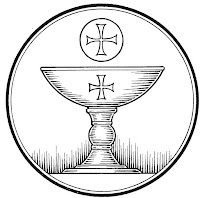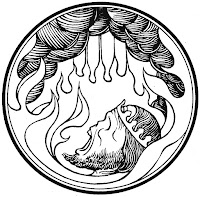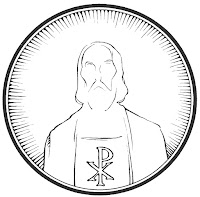CLICK HERE for the audio file.
CLICK HERE for the video file.
Invited
Grace to you and peace from God our Father, and from our Lord and Savior Jesus Christ. Amen.
“None of those men who were invited shall taste my supper.” This Parable of the Great Supper, as it usually called, might well be renamed “the Parable of the Contemptuous Guests.” Inevitably, it leads to a question addressed to each of us: “What kind of guest are you?” You think that God’s Kingdom is a future prospect. The truth is, the Kingdom of God is a present and pressing reality, and it calls for your response now! Long ago God called Israel to be His people. And now, at the accepted time, He has renewed His invitation to share in His kingdom, only to see it deliberately neglected and rejected by His own people. So now God opens the doors of His kingdom to all the despised and lost children of God.
Jesus spoke this parable to the churchmen in Israel, men who professed the faith of the people of God. But this same story has not lost any of its punch, any of its relevance for the Church, the people of God now. Through the cross and resurrection of Jesus Christ, and by the gift of the Holy Spirit at Pentecost, the Kingdom of God was thrown open to all who will receive it in faith. But just like in the parable, the invited guests, finding more important things to do, were quick to make excuses for their absence. Basically, the excuses are the same.
The first man was purchasing an estate, and had to go and inspect it and, thus, could not come. How many now are so preoccupied with increasing their material possessions that they have no time to hear the voice of the Lord, calling them to come into His kingdom, which is man’s highest and richest blessing? Elsewhere Jesus said, “Do not store up for yourselves treasures on earth, where moths and rust destroy and where thieves break in and steal; but lay up for yourselves treasures in heaven, where neither moth nor rust destroys and where thieves do not break in and steal. For where your treasure is, there your heart will be also.” The voice of God is there; it is found in His divine Word. But we prefer the noise of our coins jingling in our pockets, the clamor of the noise coming from our technological marvels.
The second man was buying some oxen to work his fields, and he needed to try them out before closing the deal. How often are our churches half empty on Sunday morning because we think we need to put in an extra day of labor, as if the six God gave us are not enough? What are people doing today, whose fathers and grandfathers would have been found in the Lord’s house on the Lord’s day? Are they polishing their tractors? Are they getting the boat ready for a day on the lake? How easy it is for a new brazen image, an idol made by human hands, to so control our thoughts and actions that we can find no space for God in our lives.
The third man had just gotten married and thought it inadvisable to leave his wife to attend the banquet. Of course, the word “wife” stands for all the joys of married life and a home of one’s own, and those joys are many. And it is beyond dispute that these are among the finest earthly blessings which our good God gives us. But it is also one of the great tragedies of life when good things like these are allowed to shut out the claims of God. It is sad, but all too often true that husbands and wives become the biggest stumbling blocks for their spouses, and either by their demands or their own lack of attention to God and the Church, pull them away from the Lord they have loved and served in the past.
Worldly possessions, business preoccupations, domestic ties; as good as these things may be in their proper sphere, they are still the things that can render us deaf to the claims of God’s Kingdom. How easy it is for us to become so absorbed in the things of time that we forget the things of eternity. We can be so busy making a livelihood that we have no time to make a life.
One point that is made in this parable is that no one is excluded from the kingdom of God except by his own doing. We totally misunderstand this parable if we do not hear it telling us urgently, “Now is the accepted time!” So there the invitation stands. “Come, for all things are now ready.” Our Lord Jesus Christ pleads with us to accept the invitation extended by the Father in heaven. It was in His hanging on the cross that He said He would draw all men to Himself, and the blood that flowed from His wounds paid the price of our admission. And we are now preparing our answers. You can refuse and say, “Please make my apologies for me, for I have other matters right now that need my attention.” Or you can answer, “I know the need of my heart and soul. I am weary of my sins and need the forgiveness that only my Savior can give me. O God, You have offered this treasure to me in Jesus Christ, Your dear Son. Now, by Your Holy Spirit, let me receive it, that it may be mine, now and forever.” As Jesus Himself said in the first of those Beatitudes: “Blessed are the poor in spirit”—that is, blessed are those who know their need for God—“for theirs is the Kingdom of heaven.” In the name of the Father and of the Son (+) and of the Holy Spirit. Amen.
The peace of God which passes all understanding will keep your hearts and minds in Christ Jesus always. Amen.









